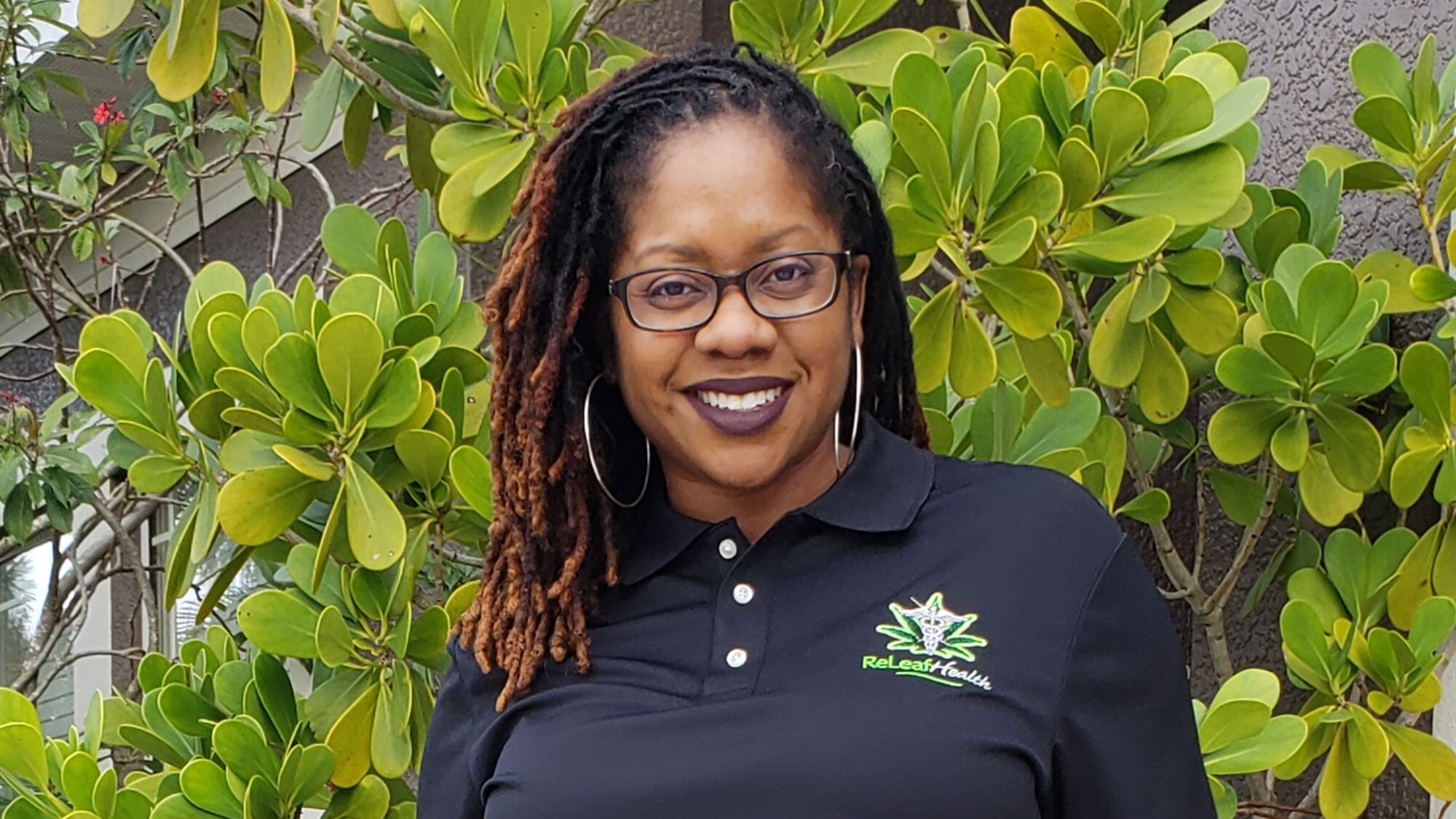Leona Latrese Thomas has many interests.
In addition to running Portland’s ReLeaf Health, one of Oregon’s few black-owned cannabis businesses, she is also a veteran IT specialist who built her own farm-to-counter inventory management system. She’s a natural health care advocate who’s had her mettle tested through multiple high-risk pregnancies. She is a community champion with goals built around destigmatization, normalization, and inclusion through education.
But of her many passions, one remains paramount.
“As cannabis became legalized, I saw a void of black and brown faces—especially black and brown women,” Thomas says over a video chat from Ruskin, Fla., where she splits her time. “This, specifically, is my passion: working women and moms. You have wine-drinking mom clubs and all these vices that are normalized, but if you smoke cannabis or CBD, it’s frowned upon.”
When Thomas and her husband, Jerritt, launched ReLeaf in Portland in 2017, it was as a wholesale, business-to-business cannabis company. But she wanted to do more.
Without any outside investment, save for help from friends and family, the couple bootstrapped ReLeaf into a top-shelf dispensary. WW asked Thomas about the struggles of juggling motherhood, entrepreneurship and heritage in an industry that, in many ways, wasn’t designed for her to succeed in.
WW: What was your relationship with cannabis like before it was legal?
Leona Latrese Thomas: It started in college, then halted. I’m nowhere near the user I was back in the day—I was one of the few fortunate graduates to go straight from college into their actual degree field, computer information systems. We were drug-tested. I couldn’t risk losing my job, which is one of the main reasons I got into the [cannabis] business to begin with.
After 15 years in the IT field, that seems like a hard pivot.
I always wanted to do something in the medical field—that was my passion since I was a little girl. I have three daughters, and during pregnancy, I had hyperemesis, an extreme form of morning sickness. During my last pregnancy, I was prescribed a Zofran pump—I literally had a pump in my leg that administered medication. Now I’m getting notices from attorneys saying, “Contact us in regards to a major lawsuit against Zofran.” It got me thinking, what would have happened if I smoked during that time? But my doctor said if I tested positive for THC twice, I could no longer be their patient. I couldn’t do something natural and effective because I would risk losing my doctors and my job, and I was stuck with a pharmaceutical option proven to cause birth defects.
This industry is pretty homogenous. What do you feel needs to happen to bring more people of color into Oregon’s weed industry?
The biggest thing to figure out is a way to make lending more accessible. Historically, across all business lines, getting funding for black and brown people has always been more difficult than for our white counterparts. In certain areas, we are often pitted against one another, whether that be women against women, black and brown people against black and brown people. But there are 5,000 different bread companies, there can be 5,000 different cannabis companies.
Other than access to capital, what other specific hurdles do black women starting out in this industry face, and how did you overcome them?
For me, the perception that I’m not an active part of my business because I’m not always present in the store. I have a 17-year-old, a 13-year-old and a 1-year-old, and my mom title comes first. This has been the biggest hurdle—just the acceptance that I can do both.
ReLeaf is on Martin Luther King Jr. Boulevard, in a historically black neighborhood. Was the location intentional or serendipitous?
We definitely wanted to be in a red-lined area, and we wanted to ensure we were part of MLK, where a lot of historically black businesses have been and still are.
It’s easy to say “buy black,” but how would you like to see Portland’s cannabis community at large support and encourage POC cannabis entrepreneurs in Oregon?
It’s the responsibility of the individual. I was recently looking for a prayer journal, and there are so many made by corporate companies. But I wanted a black woman prayer journal. And I found one. But I had to step outside of my convenience. I had to be patient.
Understand that, generally, black and brown people are funding their projects themselves with little outside investment. If Applebee’s gets your order wrong, I doubt you never go back to Applebee’s. But if you go to a black restaurant and they mess up your order, you might say, “I’m never going back.” We have to work 10 times harder to earn public trust, to show our value. It can’t just be a hashtag we promote in February—it has to be intentional every single day.
GO: ReLeaf Health, 3213 NE Martin Luther King Jr. Blvd., 971-255-1447, releafhealth.green. 11 am-8 pm Tuesday-Friday, 11 am-5 pm Saturday.
